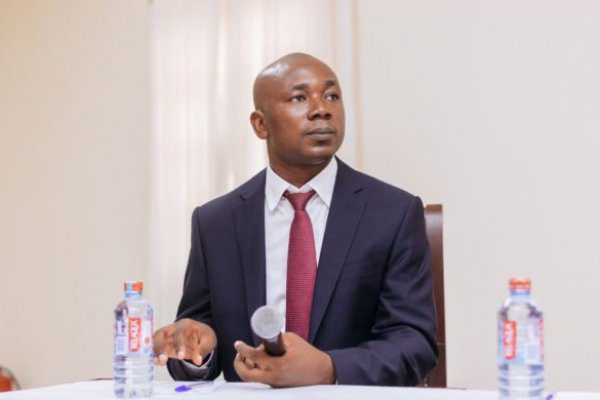Professor Godfred Bokpin of the University of Ghana Business School has said Ghana cannot build a stable and resilient currency by relying solely on gold exports or central bank interventions.
In a radio interview with Joy FM on Wednesday [July 9, 2025] Prof Bokpin said the strength of the Ghana cedi must come from genuine economic productivity and structural reforms, not short-term gains from raw commodity exports.
“There is no way we can sustainably keep the cedi stable by just exporting primary commodities as we have done over the years,” he said.
“We should be designing a system where we rather leverage value addition to our natural resources, not just mining raw gold, cocoa and the rest and shipping them out.”
Prof Bokpin noted that while recent increases in gold prices have helped shore up Ghana’s foreign reserves, the country’s continued dependence on such windfalls is risky. Without deeper reforms to strengthen the production base of the economy, he warned and added that gains from commodities could quickly evaporate when global prices fall.
He also raised concerns about the broader consequences of Ghana’s mining-focused growth model, questioning the long-term impact on the environment, public health, and agriculture.
“It’s not sufficient to say that gold is bringing in more dollars. At what cost to the environment, to health, to agriculture?” he asked. “We should be asking ourselves whether this is the kind of growth we want.”
Commenting on foreign exchange policy, Prof Bokpin said while the Bank of Ghana is within its rights to intervene in the forex market, doing so without transparency or proper timing can distort pricing and erode confidence.
“People are holding dollars outside the formal system because they believe the official rate is not a true reflection of market forces,” he said. “This pricing gap is what feeds the black market.”
He pointed to Ghana’s past experience during the 1970s and 1980s when similar distortions led to the rise of parallel currency markets. That period eventually gave way to reforms under which licensed forex bureaus were introduced, backed by international lenders.
Prof Bokpin warned that unless policymakers allow the cedi’s exchange rate to reflect supply and demand, the country risks repeating mistakes of the past. He stressed that even though Ghana currently holds stronger reserves, bolstered by gold and cocoa earnings, those reserves should be managed with caution.
“Just because reserves are available doesn’t mean they should be spent aggressively. We’re not building an economy to last only three or four years,” he said. “We need to think long-term.”
He also called on government and financial authorities to build greater trust by promoting fiscal discipline, transparency, and investment in productive areas of the economy.
“No monetary strategy can succeed unless backed by a broader vision of national development,” Prof Bokpin said. “Confidence in the cedi won’t come from speeches or interventions alone. It comes when people believe the fundamentals are strong and the economy is being managed with discipline.”
With Ghana expected to exit its current IMF-supported programme by the end of 2025, Prof Bokpin said now is the time for bold reforms that go beyond short-term stabilisation and help secure lasting economic growth.
